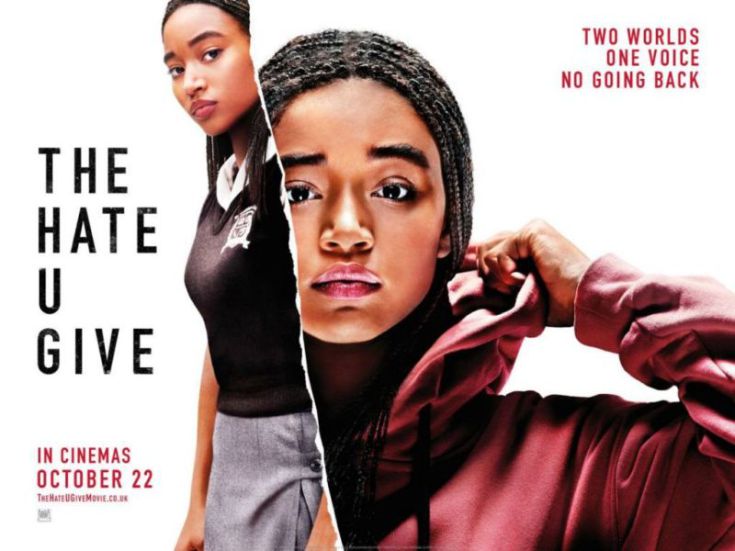The film adaptation of Angie Thomas’ young adult novel delivers a vivid and necessary insight into the lives of those affected by racial prejudice and police brutality.
The Hate U Give succeeds in reflecting on unprovoked violence inflicted upon members of the black community by the police in America.
Amandla Stenberg delivers a heart-wrenching performance as distraught teenager Starr Carter, watching helplessly as her friend Khalil (Algee Smith) is shot dead by a police officer.
Khalil is unarmed when he falls victim to this fatal shooting, highlighting the way in which preconceived notions about race can result in tragic consequences.
The tension in the pivotal scene is palpable, as the officer asks Khalil if he is ‘‘looking for a score’’. The use of this drug-related term exposes the inherent bias in what is effectively an uninformed assumption about Khalil’s character.
The detectives investigating the shooting focus on Khalil’s intentions, avoiding asking about the officer involved. Starr later criticises this attitude when she says ‘‘I didn’t know that a dead person could be charged with their own murder’’.
This scene truly fulfils its purpose, revealing unsettling attitudes in the officials as they disregard their duty to protect the community. The unspoken loyalty between officers clearly influences their beliefs about Khalil, irrespective of evidence pointing toward the guilt of the shooter.
Starr decides to address the incident anonymously, aware that providing a witness statement will leave her facing consequences. She has experienced firsthand the imbalance of power the night that Khalil was killed.
Starr’s classmate Hailey (Sabrina Carpenter) embodies ignorance with her careless racist remarks and her refusal to acknowledge injustice, an accurate portrayal of common attitudes which are obstacles on the road to real progress.
The protest scene at Starr’s school, Williamson, provides us with an example of the term “white privilege”. Students holding Black Lives Matter signs appear emotionally detached and insincere, using the event as an excuse to leave school early.
The officer is not charged with Khalil’s murder, leading to further demonstrations. Standing on a vehicle, Starr finally finds her voice and her determination is evident. She boldly recounts Khalil’s story in front of a police presence and is unflinching despite the intimidating flashing of sirens.
The incident galvanised protesters of various races, significantly emphasising that movements such as these are not encouraging a division of ethnicity, but rather a collective demand for justice.
‘‘Unity is how they crumble,’’ says Just Us For Justice leader April Ofrah (Issa Rae) at Khalil’s funeral. The message here is clear – racism is prevalent in society and expression of racist views should not go unchallenged.
The Hate U Give is thought provoking and relevant in that it echoes real struggles endured by real people. The extent of these struggles is epitomised when Starr scrolls through Tumblr; on screen are victims that the audience will recognise.
The opening scene is a flashback in which Maverick Carter (Russell Hornsby) instructs his children on what to do when interacting with the police. It is the commitment to depicting these troublesome truths that makes The Hate U Give such a riveting and important viewing.
‘‘Only thing stronger than hate is love, we need a change,’’ sings artist Arlissa in the film’s closing scene. Starr stands alone in Khalil’s room and holds his belongings in her hands.





